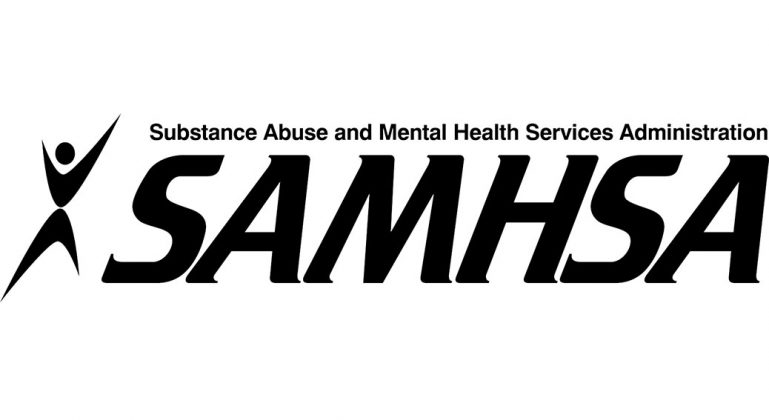HHS Secretary Becerra forms new Behavioral Health Coordinating Council
The Substance Abuse and Mental Health Services Administration (SAMHSA) is distributing $3 billion in American Rescue Plan funding — the largest aggregate amount of funding to date for its mental health and substance use block grant programs.
The Community Mental Health Services Block Grant (MHBG) Program and Substance Abuse Prevention and Treatment Block Grant Program (SABG) will disperse $1.5 billion each to states and territories (with the latter also awarding money to a tribe). This follows the March announcement of supplemental funding of nearly $2.5 billion for these programs. SAMHSA, an operating division of the U.S. Department of Health and Human Services, has expedited federal funding to grantees to help communities grappling with mental health and substance use needs during the COVID-19 pandemic.
The COVID-19 pandemic and the corresponding economic crisis have been especially devastating for Black, American Indian, Alaska Native and Hispanic communities, who are experiencing a disproportionate number of COVID-19 infections and deaths as well as higher-than-average unemployment rates. Asian American, Native Hawaiian, and Pacific Islander (AANHPI) populations have experienced increased stigma and hate due to COVID-19 anti-Asian rhetoric, which is impacting the behavioral health of AANHPI communities.
The Centers for Disease Control and Prevention (CDC) preliminary data points to 90,000 overdose deaths for the 12 months ending last September – about 20,000 more than the same period the year before. CDC data also shows that American adults in June 2020 reported elevated levels of adverse mental health conditions, substance use, and suicidal ideation. The prevalence of symptoms of anxiety was approximately three times those reported in the second quarter of 2019, and prevalence of depression was approximately four times that reported in the second quarter of 2019.
Last week, the Centers for Medicare & Medicaid Services (CMS) released data highlighting health services received by millions of Medicaid and Children Health Insurance Program beneficiaries during the COVID-19 Public Health Emergency. Despite an overall rebound for most of these services, mental health utilization remains below pre-pandemic levels.
With the nation’s mental and substance use disorder needs squarely in focus, HHS Secretary Xavier Becerra is establishing a new Behavioral Health Coordinating Council (BHCC). The Assistant Secretary for Mental Health and Substance Use and the Assistant Secretary for Health will serve as the co-chairs of this coordinating body, which is comprised of senior leadership from across the Department. The BHCC’s primary goal is to facilitate collaborative, innovative, transparent, equitable, and action-oriented approaches to addressing the HHS’ behavioral health agenda.
“Behavioral health is a priority for the Department of Health and Human Services. The COVID-19 pandemic has made clear the need to invest resources in our nation’s mental health and address the inequities that still exist around behavioral health care. That’s why we are making this historic investment in mental health and substance use services,” said HHS Secretary Xavier Becerra. “In addition, this national problem calls for Department-wide coordination to address the issue. That’s why I am convening the Behavioral Health Coordinating Council to work across HHS to facilitate collaboration and strategic planning as we implement our behavioral health agenda.”
“Across America, we are seeing a startling rise in mental health and substance use disorders during the COVID-19 pandemic,” said Assistant Secretary for Health Dr. Rachel Levine. “We know multiple stressors during the pandemic – isolation, sickness, grief, job loss, food instability, and loss of routines – have devastated many Americans and presented the unprecedented behavioral health challenges across the nation. Addressing the COVID-19 mental and behavioral health impacts on vulnerable and disenfranchised populations are among the top priorities of the Biden-Harris Administration. Establishing a new Behavioral Health Coordinating Council will assure the right prioritization and guidelines are in place to provide pathways to prevention, intervention, treatment and recovery services.”
“The Biden-Harris Administration’s support through the American Rescue Plan funding will increase community-level supports for Americans who have been grappling with devastating emotional and mental challenges during the COVID-19 pandemic,” said Acting Assistant Secretary for Mental Health and Substance Use Tom Coderre. “Given the significant impact mental and substance use disorders can have on the lives of individuals, families and communities, the establishment of the BHCC provides a critical tool in addressing these issues in a collaborative and strategic way.”
The MHBG program enables states and territories to provide comprehensive community mental health services and address needs and gaps in existing treatment services for those with severe mental health conditions.
The SABG program allows states and territories to plan, implement and evaluate activities to prevent, treat and help more people recover from substance use disorder. This funding will also allow recipients to make investments in existing prevention, treatment and recovery infrastructure, promote support for providers and address unique local needs to deliver substance use disorder services.
Funding allocation tables can be viewed here:
People searching for treatment for mental or substance use disorders can find it by visiting https://findtreatment.samhsa.gov or by calling SAMHSA’s National Helpline, 1-800-662-HELP (4357).




